From The Fat Badger to The Bull, how Public House is redefining the British pub
Inside the design-driven food group putting provenance, craft and community back at the heart of pub culture
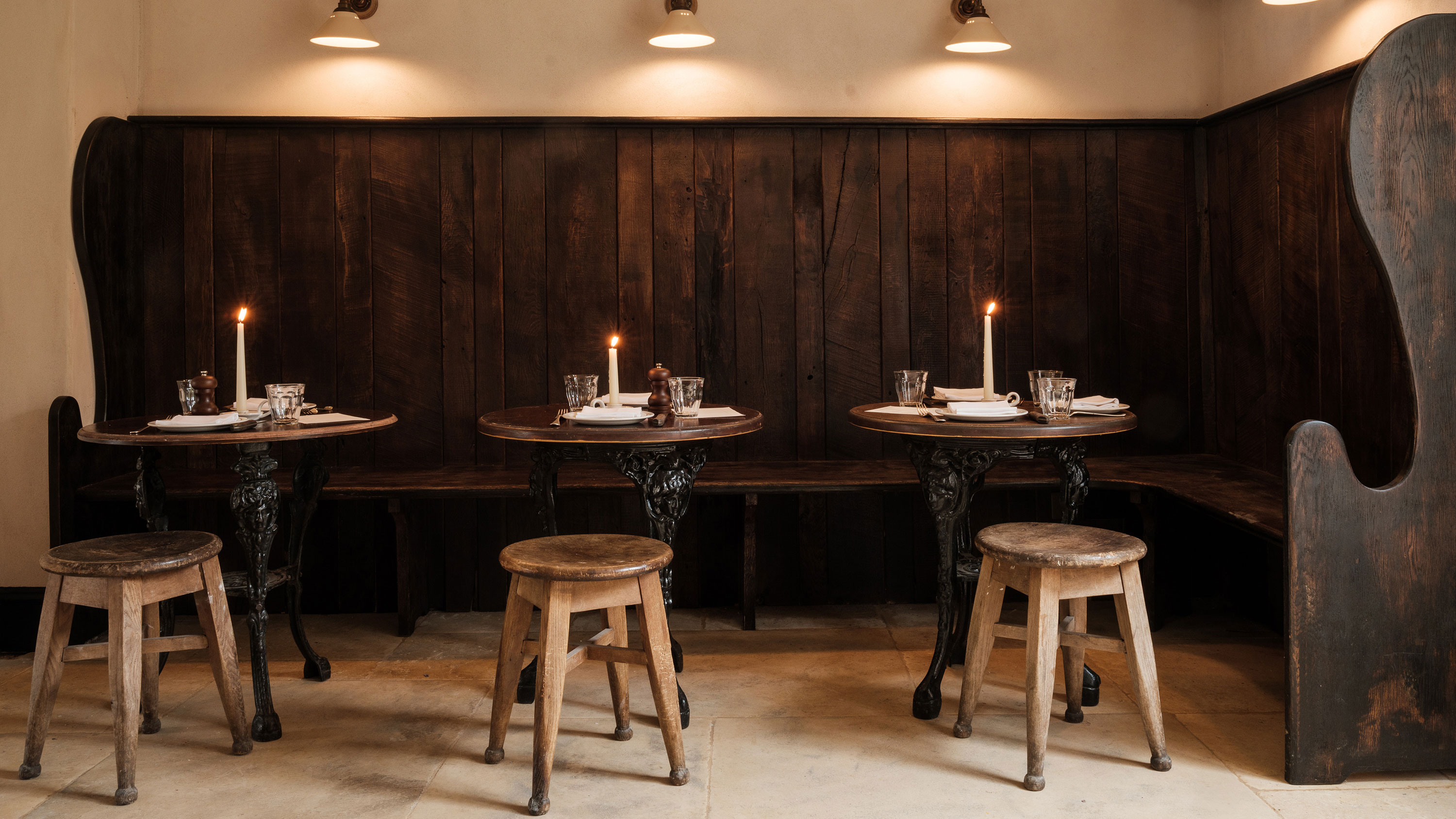
Receive our daily digest of inspiration, escapism and design stories from around the world direct to your inbox.
You are now subscribed
Your newsletter sign-up was successful
Want to add more newsletters?

Daily (Mon-Sun)
Daily Digest
Sign up for global news and reviews, a Wallpaper* take on architecture, design, art & culture, fashion & beauty, travel, tech, watches & jewellery and more.

Monthly, coming soon
The Rundown
A design-minded take on the world of style from Wallpaper* fashion features editor Jack Moss, from global runway shows to insider news and emerging trends.

Monthly, coming soon
The Design File
A closer look at the people and places shaping design, from inspiring interiors to exceptional products, in an expert edit by Wallpaper* global design director Hugo Macdonald.
It may be Notting Hill’s hottest dining ticket, but you’d be forgiven for ambling straight past The Fat Badger. An unprepossessing door down a Portobello side street – set behind the modish Italian diner, Canteen – and a painted pub sign of the eponymous burrower give little hint to what lies above. Ascending a tight, dowdy staircase, one first happens on the bar; all ecru linen, rough beige plastering and anachronist downlighting, ersatz Georgian and charming with it. Up again, and it’s into a vision of dining room: a simulacrum of bucolic British and retro Alpine, swathes of oak panelling and mahogany leather dotted with bushels and copper pans, a bustling open kitchen demarcated by a black-marble counter its nexus. It’s swooning, but looks aren’t everything. These merely buffer some of the finest modern British food crossing a pass anywhere in the city. But before dinner, some context.
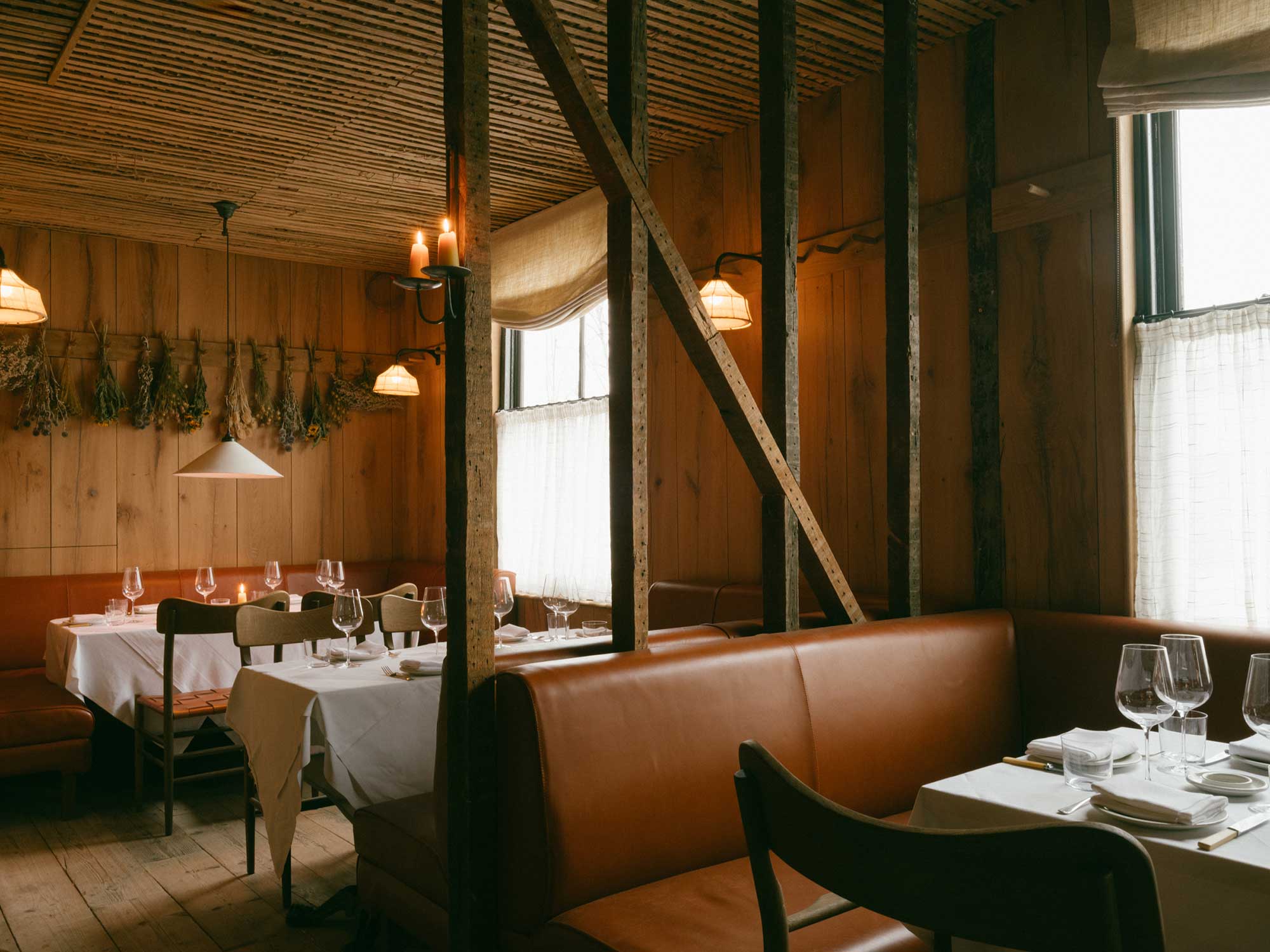
Notting Hill's The Fat Badger
The Fat Badger is perhaps the most garlanded opening yet from Public House; the newest sibling of artfully scuffed contemporary gastropubs The Pelican in Westbourne Park, The Hero in Maida Vale, and Cotswold bolthole The Bull in Charlbury. The group, inaugurated in 2022 with the opening of The Pelican, is the brainchild of Philip Winser (concept and design) and James Gummer (ops and menu development), who grew up together near Charlbury. (The third partner, Olivier van Themsche – business and acquisitions – is French.) Returning to the UK during Covid after a long hospitality jaunt in the US, Winser was galvanised with a growing interest in farming and food pathways, and keen to open something in London. Gummer’s local – now The Pelican – was up for sale: 'A hideous, blue-painted Italian pub concept,' says Winser. 'But such amazing bones.' Piqued with the idea of framing a traditional British pub as both a hub for beer-sloshing conviviality and a vehicle for platforming homegrown cooking and produce in an unbuttoned context, they took the plunge. The rest is history.
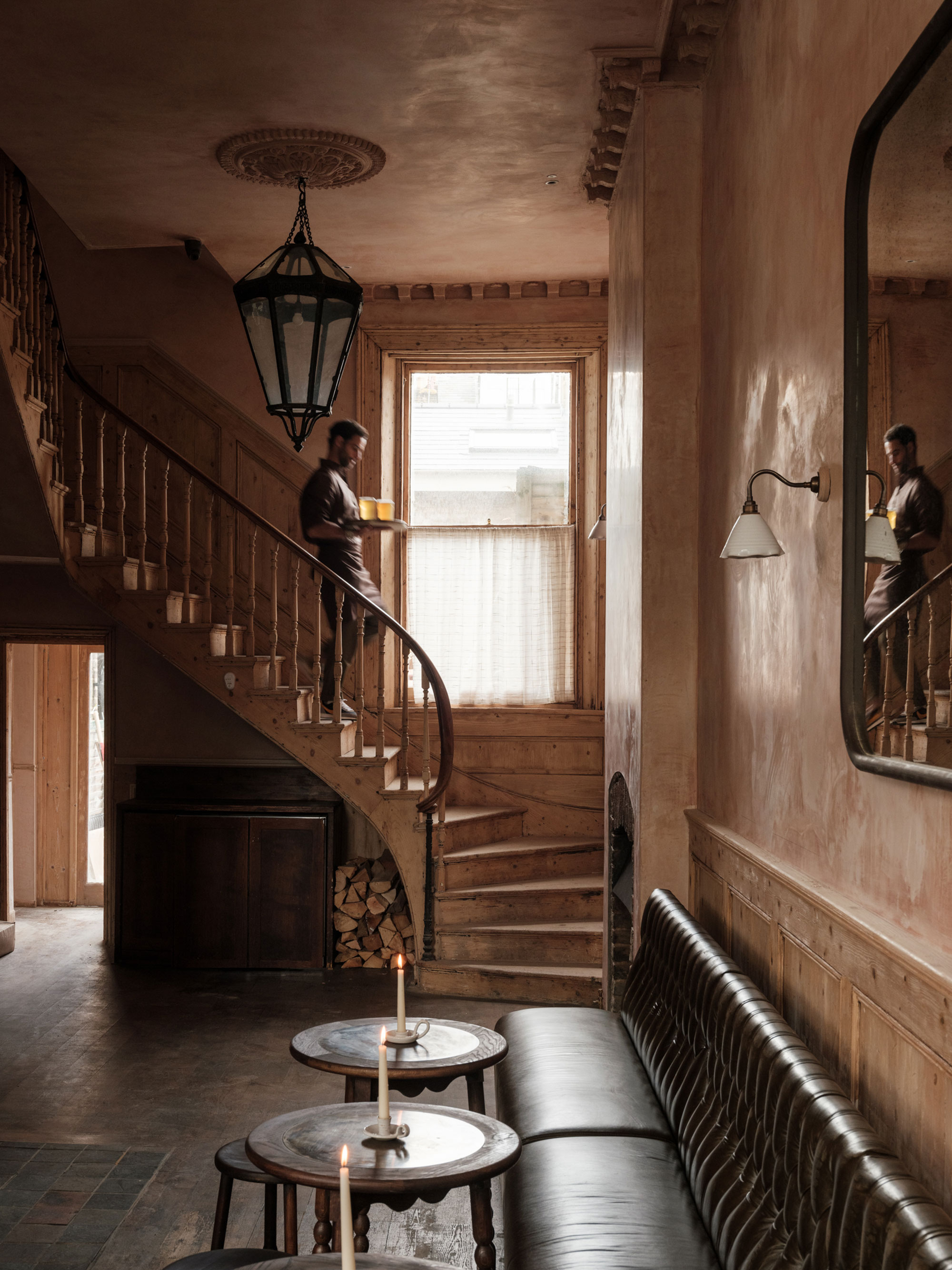
The Hero in Maida Vale
Provenance has been the group’s core tenet across both aesthetics and eating from the off. All its pubs are laughably beautiful: urban-pastoral amalgams of muted minimalism and an elegant harnessing of original and curated features. They operate a full-service, in-house design and build studio, led by interior designer Leticia Blakiston Houston, and have adhered to a key set of rules from the outset: no paint, natural materials, lime plaster, beautiful objects, a sense of nostalgia. 'A design style that’s sort of how our houses would look,' Winser says. 'Everything had to have a level of craftsmanship and be based around UK heritage. Even down to the oak we use, it was all taken to a really nerdy level.' (To those ends, they work closely with a furniture restorer near Charlbury; with deVOL kitchens on custom lighting; luxe kitchenware brand Katto for their knives; and an artisanal Somerset bedmaker to forge the four-posters in the Bull’s overnight rooms, to name but several.)
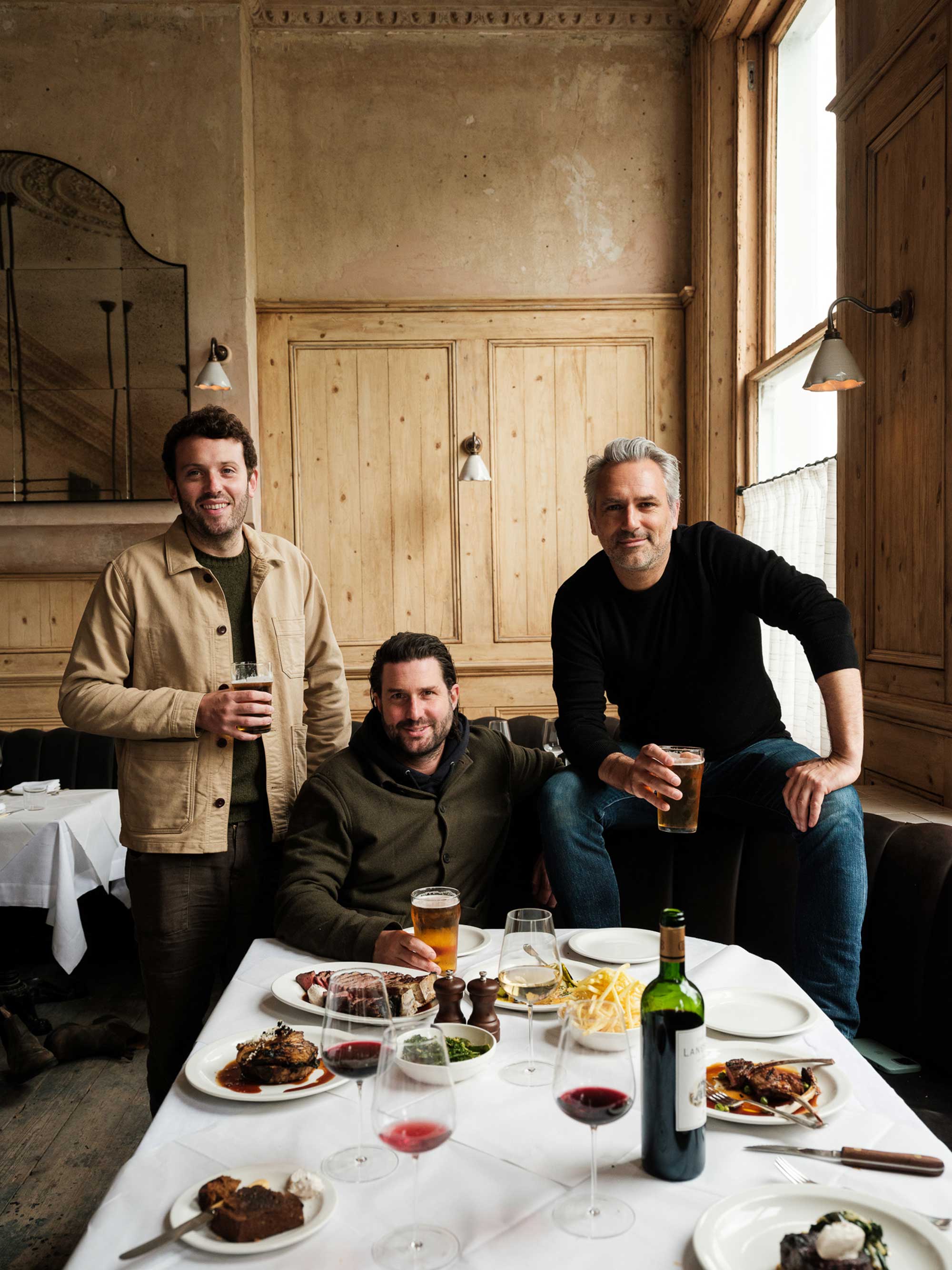
As for the food, seasonality and sustainability are paramount. As much produce as possible is sourced in the UK, with a decent amount pulled from their own market garden at Bruern Farms near Charlbury (a 1.6-acre plot with approximately a polytunnel per pub), and animals bought whole from the the regenerative Whittington Lodge and Paddock farms in the Cotswolds. Its simple, ingredient-led dishes bely some serious cheffing bona fides: Sally Abé, previously of The Pem, has been recently installed as head of food at The Bull; The Fat Badger’s head chef George Williams manned the hobs at Dorian and the River Café; and group exec chef Doug Sims led the kitchen at Quo Vadis. The menus are as ascetic in concept as they are deft in practice, offering no more detail than things like ‘fresh cheese, pea’ or ‘cod’s cheek, curry’ – which would seem affected if the results weren’t so delicious.
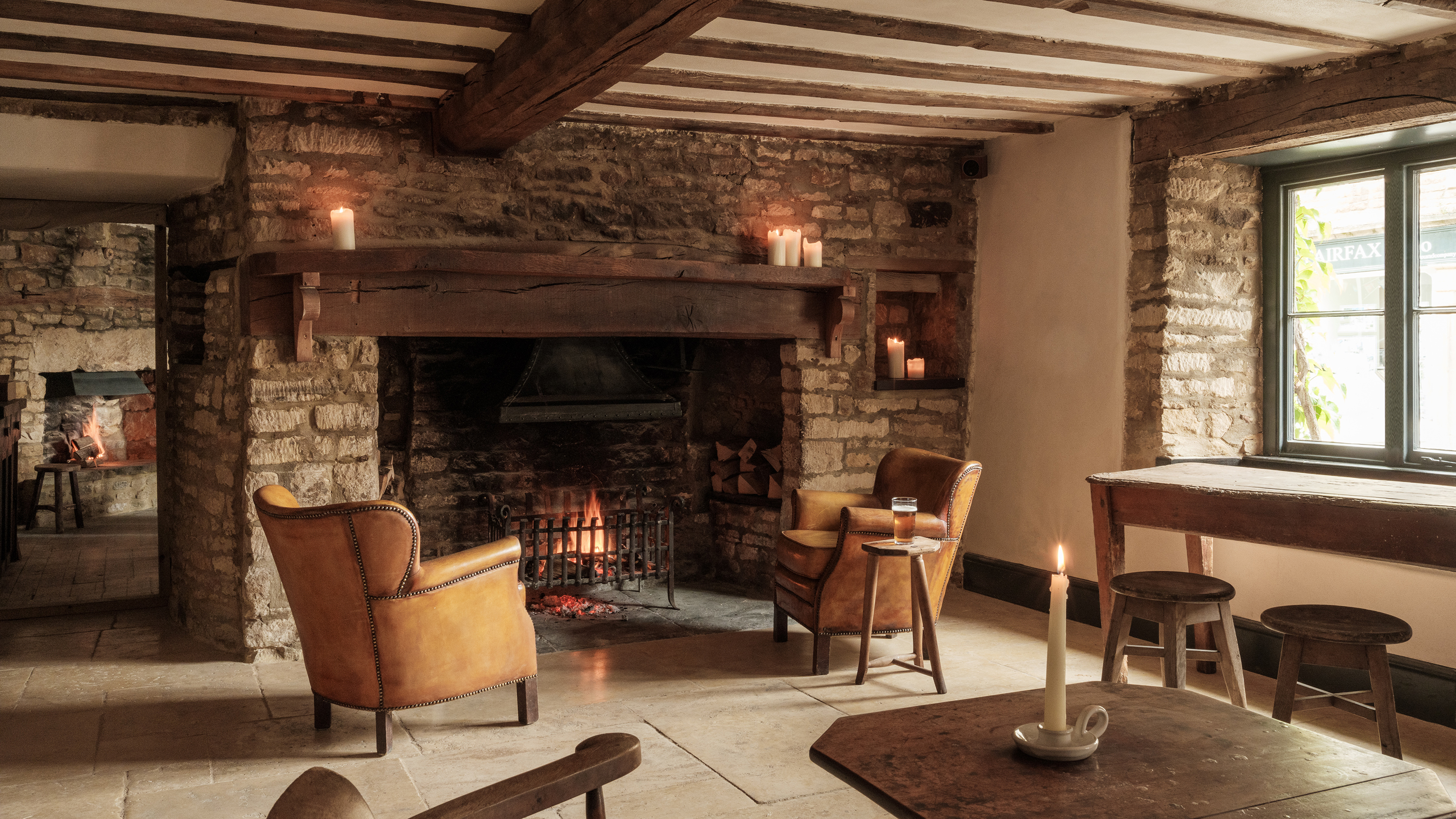
A fireside seat at The Bull, Charlbury
The Pelican, et al, run a conventional à la carte. But at the Badger, wunderkind Williams and sous Beth O’Brien have devised a set menu format: four courses, a few snacks, a modicum of choice in terms of the headline mains but you’re generally at the whims of the kitchen. The overarching focus on seasonality and sourcing remain, but things err more painterly here, especially in the small bites: a chilled tomato and crab soup with perfect soda bread; a Cornish tuna belly tostada with finger lime; shuddering nuggets of sweetbread on celeriac tacos; scallops with Lilliputian white prawns and bisque (and so on).
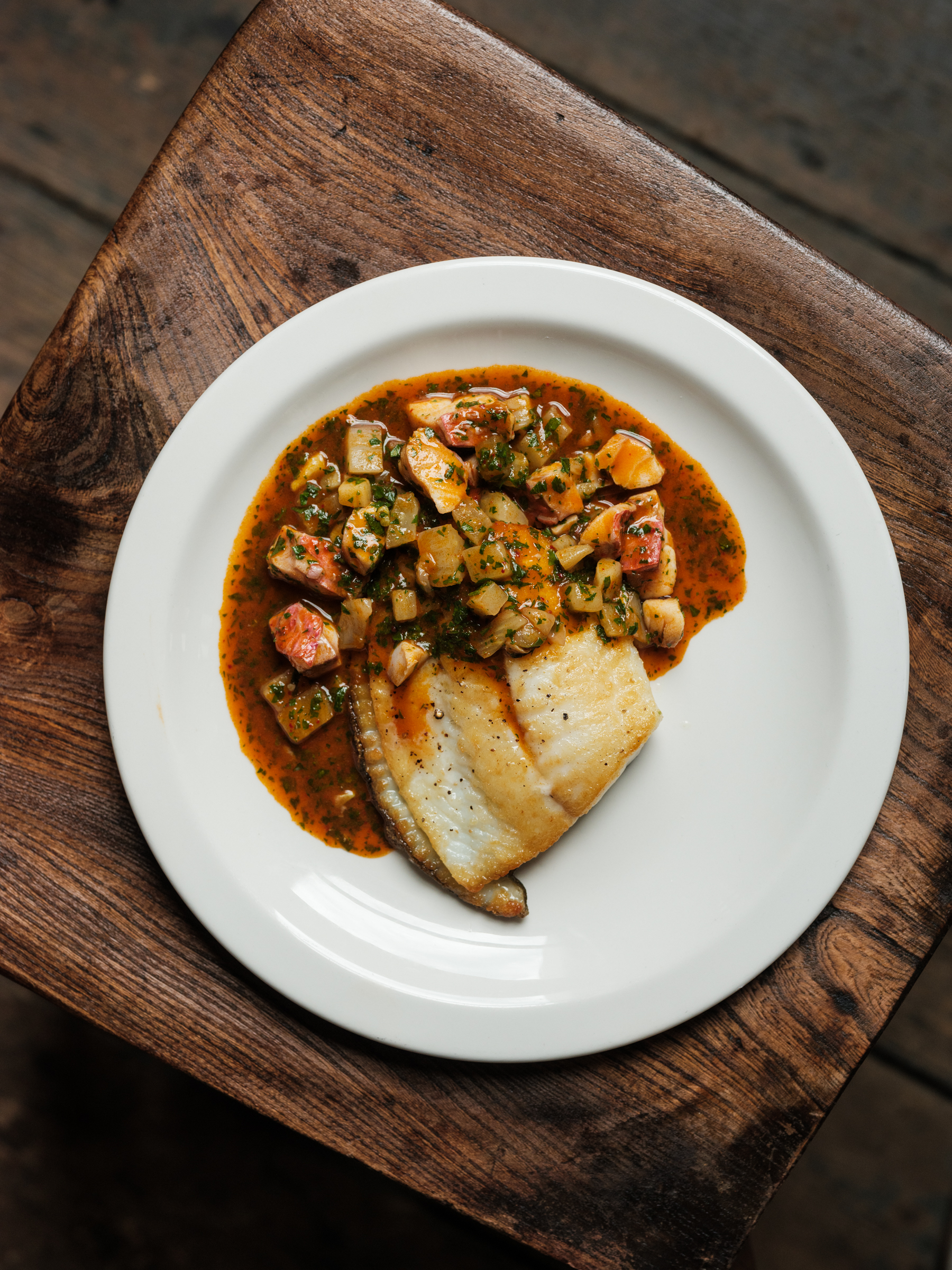
Dinner at The Pelican
Delicate it may be, restrained it is not. 'It's a bit of a feast,' says Williams. 'Exactly how I like to eat: loads of food at the beginning, something really intricate and interesting, and then just something big to make sure that everyone's nice and fed.' It’s all, cumulatively, exceptional – the pub experience embellished with a slick of ceremony, subtle recherché club vibes afforded by the half-hidden entrance, and course after course of blinding eating. The immersive spatial design and hubbub of the visible kitchen were conceived to heighten the communal ambience, too: 'The thing that kept coming up in the conversation was that we wanted to feel like being in someone's kitchen,' explains Williams.
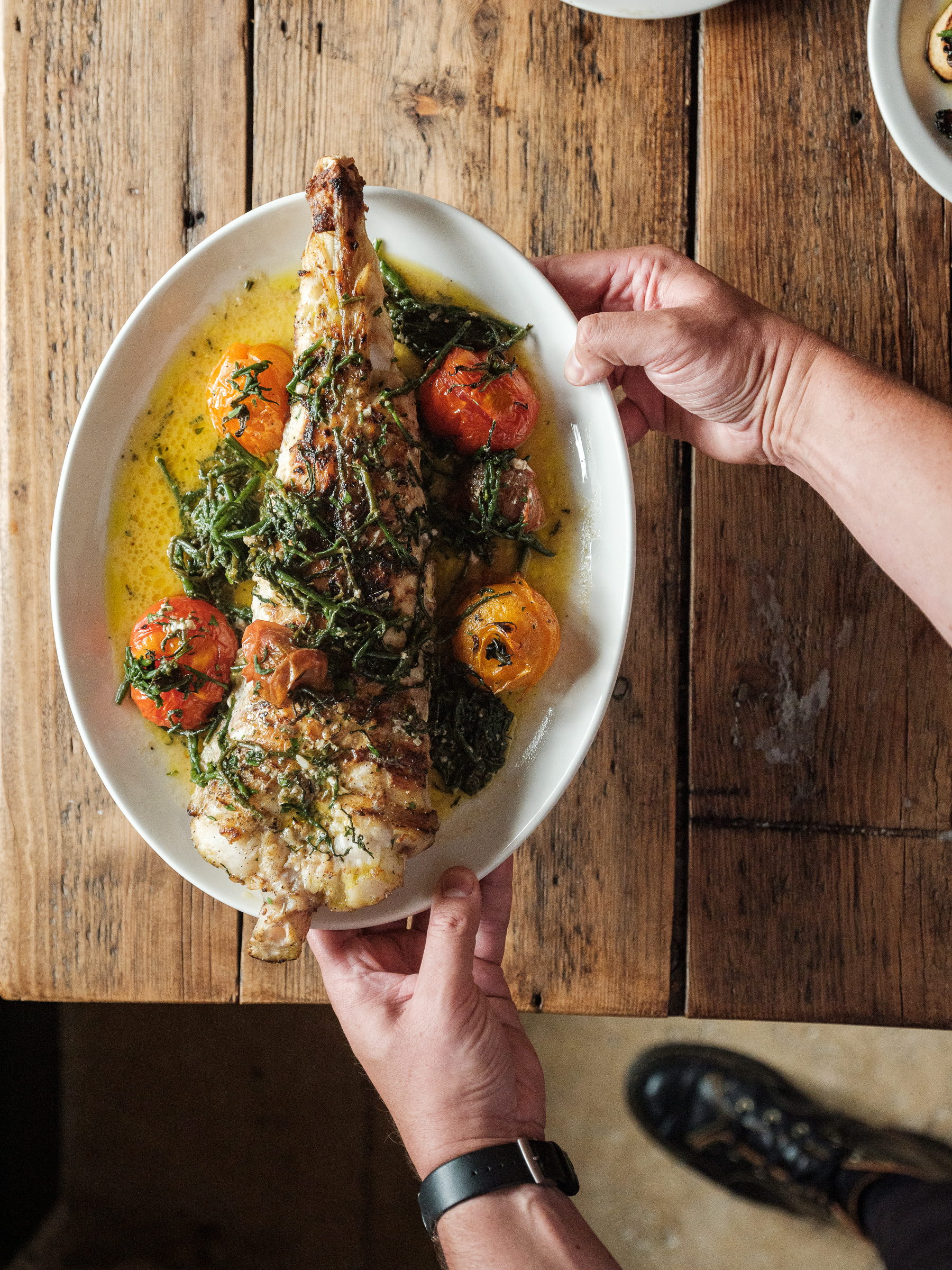
Dinner is served at The Bull Charlbury
And next? After opening another pub – The Hart, off Marylebone’s bijous Chiltern Street this autumn – Winser, Gummer and van Themsche have their sights set on co-launching Pub Club. A training initiative near Charlbury, its aim is to impart practical knowledge and skills in cooking, front-of-house, food production, nutrition and financial literacy, promoting hospitality and its skillsets in a hands-on, project-based way for new generations. 'We spent the last couple of years working on food distribution and producers,' explains Winser. 'We're now looking within the organisation of how to invest and create new systems.' The scheme, he says, aims to give 'young adults the confidence to get into the hospitality industry and realise that there's a really great career path there' in a way that isn’t as regularly embraced in the UK as it is on the continent. Embryonic it might be, but the intention is laudable.
Receive our daily digest of inspiration, escapism and design stories from around the world direct to your inbox.
When it comes to food, Notting Hill and its near environs are, irrefutably, having their moment. Dorian, Ria’s, Dove, Canal, Canteen, Eel Sushi Bar, Permit Room... the cast proliferates by the day. The Fat Badger might be its most esteemed player yet. As for the group itself: city-best eating, design mag looks and a social conscience? Call it a full house.
Tom Howells is a London-based food journalist and editor. He’s written for Vogue, Waitrose Food, the Financial Times, The Fence, World of Interiors, Time Out and The Guardian, among others. His new book, An Opinionated Guide to London Wine, will be published by Hoxton Mini Press later this year.